-
Danish parliament to approve seizure of valuables from asylum seekers
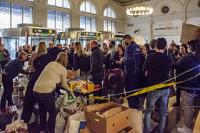
The Danish parliament appears ready to approve today (Wednesday) a controversial measure proposed by Denmark’s government, which would allow the Danish authorities to confiscate jewelry and cash from asylum seekers. Lars Løkke Rasmussen, Denmark’s prime minister, strongly defended the law stripping refugees of valuables, saying that many of those coming to Denmark have no idea how generous the Danish welfare state is. “It is in that context you should understand that we in Denmark say before you get these benefits, you must — if you have a fortune — pay for yourself,” the prime minister said.
-
-
Travel association to DHS: Tell Congress about visa overstays before tourism is restricted
The U.S. Travel Association is urging DHS to address people who stay overstay the length of their approved visas before placing new restrictions on visa waiver programs that are designed to boost U.S. tourism. “We should not even begin to discuss further improvements to visa security without much-needed data from the Department of Homeland Security on visa overstays,” the association says.
-
-
Human traffickers exploit fiancé and work visas
In a report released on Monday, DHS IG says that human traffickers used fiancé and work visas to bring dozens of people to the United States. The IG says this was possible because of a lack of data sharing between immigration offices within the department.
-
-
Sunni states cut Iran ties; Syrian regime uses sarin gas; ISIS’s Libyan oil terminal; European borders closing
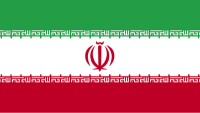
Bahrain, Kuwait, and Sudan cut their ties with Iran, while the UAE downgraded its relations; a UN fact-finding mission has found evidence for the use sarin gas in Syria; ISIS launched a coordinated gun and suicide car bomb attack on the Sidra oil port on Libya’s Mediterranean coast.; Denmark and Sweden reintroduced border controls in an effort to stem the wave of refugees trying to enter the two countries.
-
-
Refugees in Germany; Swedish border checks; ISIS’s British medics; U.K. flood defenses
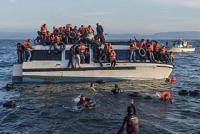
German economist says Germany should expect a tough competition between refugees and poorer Germans; Sweden, as of midnight Sunday, began to impose strict identity checks of all travelers from Denmark; a British delegation, including an imam from London, has traveled to Sudan to try to dissuade young British doctors from joining ISIS; as parts of the United Kingdom braced themselves for more misery, the government’s storm-related actions are criticized.
-
-
Tighter airport employee security; ISIS senior operative killed; Norway tightens asylum laws; West Bank settlements
The TSA is increasing the number of random checks of employees – of both airports and airlines — who hold badges which allow them to enter restricted area at airports; The Pentagon said that Charaffe al-Mouadan, a French national who had joined ISIS in Syria, was killed in a 24 December U.S. airstrike; The Norwegian government said that it is planning to ask the Norwegian parliament to change forty or so major and minor asylum laws in order to tighten the country’s asylum policy; Israel continues to plan for building in the E1 area of the West Bank — if the plan is implemented, it would, in effect, cut the West Bank in half, making the creation of a contiguous, viable Palestinian state impossible.
-
-
Brazil-Israel stand-off over embassy appointment; teaching German to children refugees
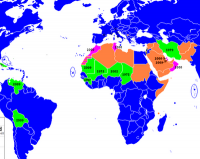
Israel’s outgoing ambassador to Brazil, Reda Mansour, has completed his tour in Brasilia last week and returned to Israel. Brazil, however, is unwilling to accept his replacement — Dani Dayan, a former head of the Jewish settlement council in the Palestinian territories who lives in the occupied West Bank; Germany is in the process of recruiting 8,500 teachers to teach German to children of refugees. The German government estimates that about 196,000 refugee children will enter the German school system this year.
-
-
San Bernardino mosque may be reason for barring British Muslim family from entering U.S.

Muhammad Mahmood, 47, who is a U.S. citizen and who a runs a car repair shop in San Bernardino, California, speculated that the reason his two brothers, their wives, and their children — all of them British citizens – have been barred from entering the United States to visit Disneyland was that he prays at the same mosque where one of the San Bernardino shooters, Syed Farook, used to pray.
-
-
France’s emergency anti-terrorism laws; Russian air strikes’ toll; DHS deportation campaign
The French government plans to propose constitutional amendments aiming to shield state-of-emergency measures from legal challenges; Russian air strikes in Syria, which began 30 September. The Russian strikes have killed 2,132 people, a third of them civilians; DHS is set to launch a campaign to deport illegal immigrant families who arrived in the United States since the beginning of 2014.
-
-
Over the weekend, the number of refugees arriving in Europe crossed 1 million mark
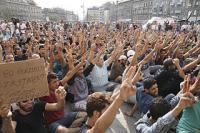
The International Organization for Migration (IOM) said on Monday that over a million irregular migrants and refugees arrived in Europe in 2015, mostly from Syria, Africa, and South Asia. With arrivals of 4,141 migrants or refugees landing in Greece on Monday, IOM reports total arrivals to Europe at roughly 1,005,504, with just 3 percent coming by land. The total is the highest migration flow since the Second World War.
-
-
UN refugee chief: Anti-Muslim refugee rhetoric helps ISISI propaganda, recruitment
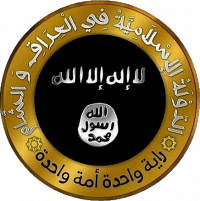
The UN refugee chief, criticizing U.S. and European politician who want to block Syrian refugees from resettling in their countries, told the Security Council Monday that “Those that reject Syrian refugees, and especially if they are Muslim, are the best allies of the propaganda and the recruitment of extremist groups.”
-
-
U.S. guards at U.K. airports; growing number of refugees; unaccompanied minors at the border
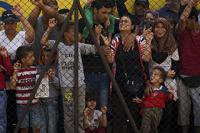
U.S. border guards with the power to search holiday travelers will be stationed at British airports for the first time, as part of a plan being discussed by the two countries; The UN refugee agency released a report Friday that showed rocketing numbers of people having been displaced within their countries or living as refugees or asylum seekers during the first half of the year; in October and November, more than 10,000 unaccompanied minors crossed the border through Mexico, twice as many as the same months last year.
-
-
Since 2001, U.S. has revoked 9,500 visas over terrorism threat
Since 2001, the U.S. government has revoked more than 122,000 visas – of which some 9,500 were revoked because of the threat of terrorism. The information was revealed by Michele Thoren Bond, assistant secretary for the Bureau of Consular Affairs at the Department of State. When Bond was asked about the whereabouts of the thousands of foreigners whose visa had been revoked, she admitted she did not know. Members of a House panel before which Bond was testifying pressed her on why public social media postings should not be routinely examined as part of the vetting process for those attempting to enter the United States.
-
-
Israel-Turkey rapprochement; refugees’ jewelry in Denmark; mysterious death in Argentina
Israel and Turkey were once close allies, but the relationship between the two countries has cooled after the Islamist party of President Recep Tayeep Erdogan came to power in 2002, and he was elected president in 2003. The two countries have decided that the many challenges they face in common now justify the resumption of normal relationship, even if the two countries are deeply divided over the treatment of the Palestinians by Israel; Denmark is set to pass a law which would allow authorities to confiscate jewelry from refugees entering Denmark in order to pay for some of the refugee-related expenditures by the government; the new government in Argentina will reopen the investigation in to the mysterious death in January of a prosecutor who was about to charge former president Cristina Fernandez de Kirchner with covering up Iran’s involvement in the killing of eighty-five Argentinian Jews in 1994.
-
-
Syrian Refugees in Jordan and Lebanon: Young, female, at risk
Nearly nine in ten registered Syrian refugees living in Jordan are either poor or expected to be in the near future, a new World Bank report says. The nearly 1.7 million Syrians who are registered in neighboring Jordan and Lebanon live in precarious circumstances. The World Bank estimates that there are currently sixty million people forcibly displaced globally — as refugees, internally displaced persons, and asylum seekers fleeing conflict and persecution. Most of the displaced people are concentrated in developing countries.
-
More headlines
The long view
Social Acceptance of Immigrants Working as Politicians or Judges Is Low
Often, the dominant society develops negative attitudes towards immigrants and their descendants because their integration is too successful – and not because they are unwilling to integrate. A possible explanation for negative attitudes towards successful immigrants could be the dominant society’s fear of immigrants occupying influential and value-based occupations. This applies, for example, for immigrants working in local politics or law.
